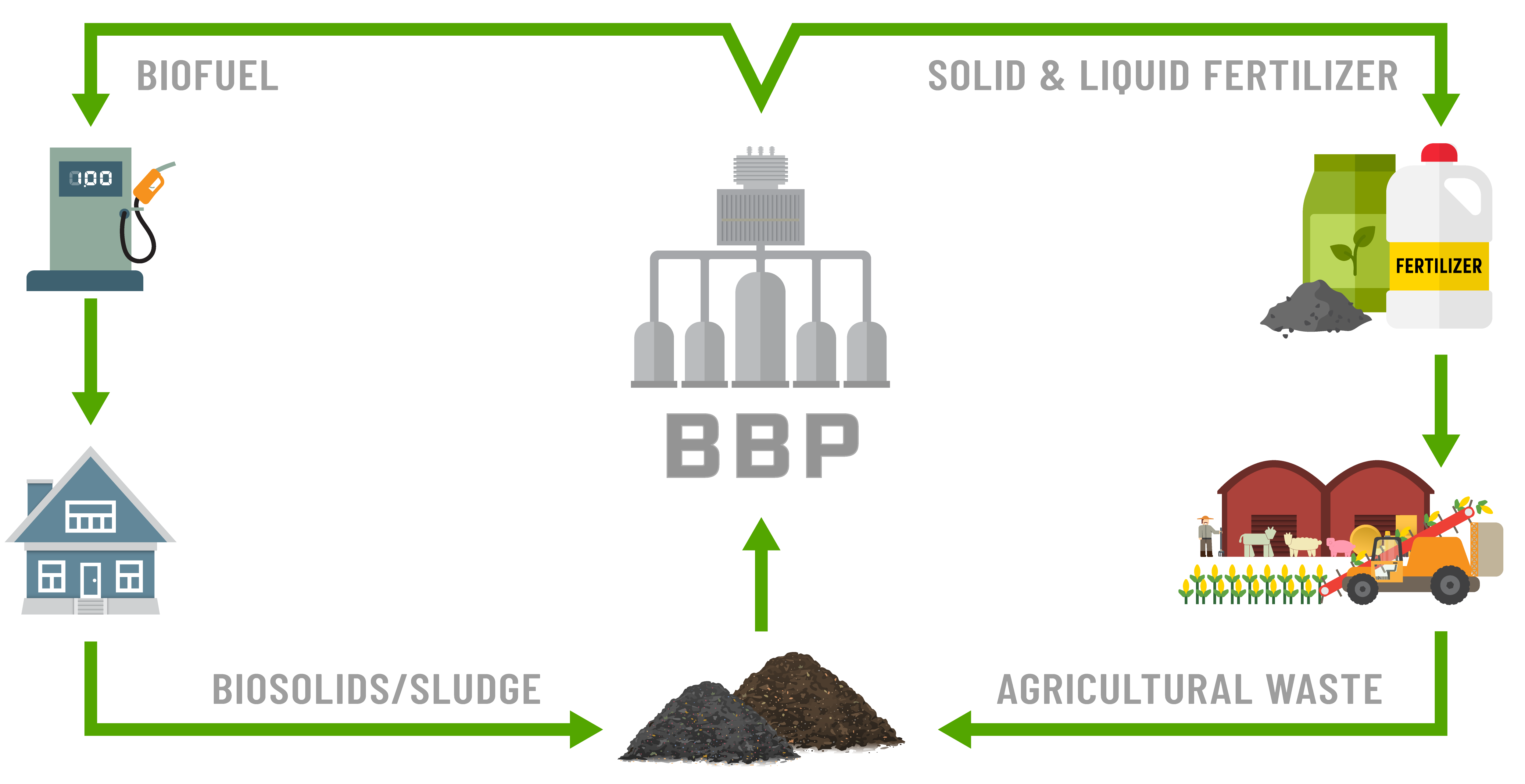BBP
Brisa Biosolids Processing
The most innovative advancement in waste processing technology in recent years, the Brisa Biosolids Processing (BBP) system is a sustainable solution to some of the world’s most pressing environmental issues. It is the first technology of its kind to process mixed organic waste, such as wastewater sludge, oil, grease, and agricultural wastes – even those with high water content. BBP outputs commercially valuable products, and greatly reduces the carbon footprint from waste disposal. This breakthrough technology is the first to fully eliminate these abundant and problematic waste types profitably.
Better for the Planet
The BBP system is sustainable, meaning it will never involve returning any waste into the environment – ever.
8x More Effective
The BBP system is 8 times more effective than anaerobic digestion, the benchmark process. It also degrades all biosolids in only 15-30 minutes, whereas today’s common processes take about three weeks on average.
No Disposal Costs
We do away with the need for landfills and incinerators by processing ubiquitous organic wastes – from agricultural waste to biosolids and more.
Profitable & Scalable
This technology not only allows for billions in savings, but it also generates outputs that make a direct profit. Brisa Biosolids Processing produces its own revenue streams from selling renewable products like biofuel, soil fertilizers, and more.
Brisa Biosolids Processing
The Process

Outputs
Biochar
Biochar is black carbon produced from biomass sources for the purpose of transforming the biomass carbon into a more stable form. It improves water quality and reduces soil emissions of greenhouse gases, nutrient leaching, soil acidity, and irrigation/fertilizer requirements.
Liquid Fertilizer
Liquid Fertilizer already has an established market and has the same application as traditional fertilizer. However, liquid fertilizer is in higher demand due to its ability to mix in other nutrients, allowing it to be customized for the area/type of crop that it is being used on.
Biofuel
Biofuel is an alternative to liquid fossil fuels that uses renewable feedstock as its source of energy-rich oils. Like fossil fuel, biofuel releases CO2 when burnt – but unlike fossil fuel, it releases CO2 from a source recently removed from the atmosphere, resulting in a net zero carbon output.
Carbon Credits
Carbon credits are a way to handle emissions and offer a fungible incentive to industries. These credits can be bought and sold on the open market. With the Paris Accords deal signed and market prices rising rapidly, this is expecting to be an extremely valuable market for years to come. Our technologies generate a lot of carbon credits.
